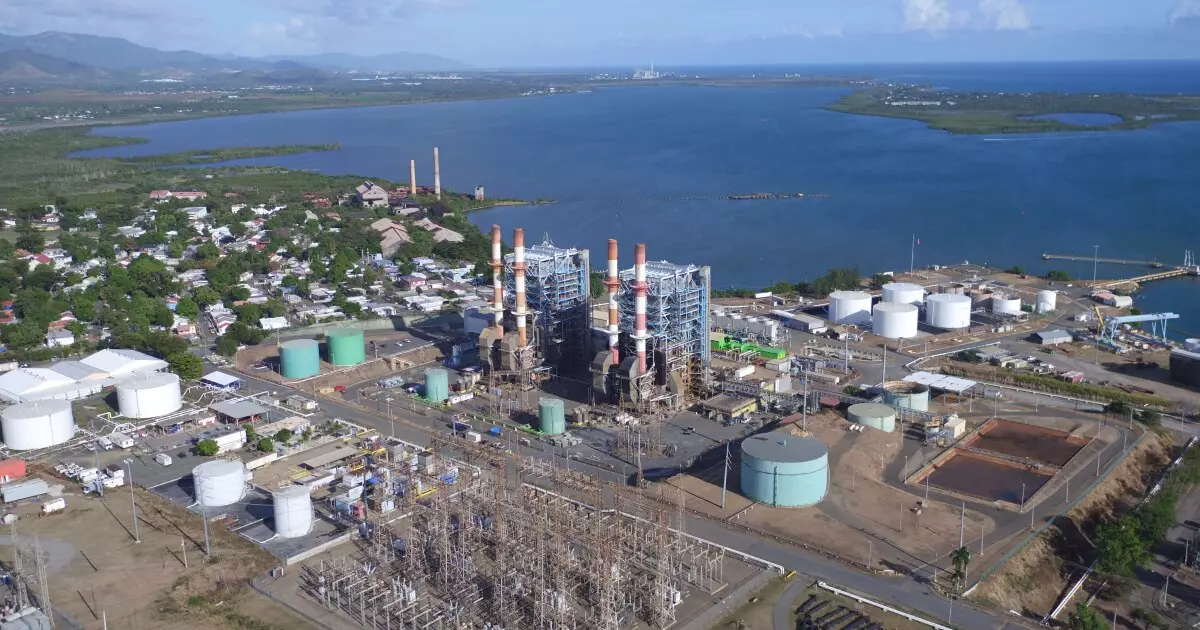3.7 Billion Reasons to Reassess Puerto Rico’s Bankruptcy Debacle

The ongoing bankruptcy saga of the Puerto Rico Electric Power Authority (PREPA) reveals a distressing rift not just within the management of the utility, but also amongst the financial stakeholders entwined in its complex web of debts and obligations. Recently, the Puerto Rico Oversight Board clashed with PREPA’s bondholders over a staggering $3.7 billion administrative expense claim. The Oversight Board contends that these claims should be classified as subordinate to other claims against Puerto Rico’s central government. This argument raises significant questions about the judgment and positioning of the bondholders, as they seek to recover compensation that the Oversight Board argues they are not entitled to. The implications of this dispute extend far beyond corporate finances; it underscores a broader conversation about fiscal responsibility and governance in Puerto Rico.
Misplaced Expectations and Constitutional Arguments
At the crux of the bondholders’ argument is a controversial interpretation of the U.S. bankruptcy code’s provisions. They assert that they have a clear right to make claims for administrative expenses, alleging that any encroachment on their collateral constitutes a serious violation of their rights as creditors. However, the Puerto Rico Oversight Board contends that the bondholders are attempting to exploit legal ambiguities to manipulate an already strained governance structure. The Board highlights the dangers of “constitutional avoidance,” suggesting that the bondholders are not grappling with genuine ambiguities within the law but rather attempting to assert their position amid a situation that is quite clear. This strategic maneuvering reflects an unsettling trend: when stakeholders prioritize their financial interests over the collective welfare, they risk derailing the fiscal rehabilitation process crucial to Puerto Rico’s future.
Collateral Concerns: The Heart of the Matter
One of the pivotal aspects of this dispute is the nature of the collateral in question—specifically, PREPA’s net revenues. The bondholders argue that these revenues, which are critical for their administrative claims, constitute their collateral. The First Circuit Court of Appeals had previously ruled in favor of the bondholders on this matter, further complicating the Oversight Board’s efforts to assert control over the bankruptcy proceedings. However, the Board’s counter-argument suggests that the money is being utilized for essential governmental functions rather than in direct violation of creditor rights, thereby raising questions about what accountability actually entails in a scenario where public utility services are hanging in the balance.
A Road To Consensus or A Path of Conflict?
Amidst the conflicting claims and legal verbiage, the bondholders have expressed a preference for reaching a consensual agreement with the Oversight Board and PREPA, signaling an acknowledgment that prolonged litigation could be detrimental to all parties involved. This reflects a glimmer of hope in an otherwise challenging financial landscape. However, the stark reality remains that fiscal health for Puerto Rico and PREPA cannot arise solely out of negotiations amongst entrenched interests. The path forward must consider the broader socioeconomic challenges that the island faces, with a focus on ensuring that the needs of the populace are met before prioritizing creditor expectations.
The Bigger Picture: Puerto Rico’s Economic Rebirth
The turmoil surrounding PREPA’s bankruptcy is emblematic of the larger economic strife Puerto Rico continues to grapple with. As the debate rages on between the Oversight Board and bondholders, one must not lose sight of the island’s pressing need for economic revitalization and infrastructure overhaul. With each passing day, the protracted bankruptcy process stifles growth, diminishes investor confidence, and exacerbates the struggles of ordinary Puerto Ricans who depend on stable electricity services. It begs the question: could progress be made if both sides shifted their focus from entrenched positions to collaborative solutions aimed at true rehabilitation? In an era where the islands’ governance must pivot towards sustainability and community-focused policies, this ugly fight over $3.7 billion may serve as both a cautionary tale and a rallying call for more compassionate and ethical fiscal management.
The stakes are high, and the precedents set in the PREPA case will resonate long into the future of Puerto Rico’s governance and fiscal policy. Addressing these challenges is imperative for healing the economic wounds of the past and creating a robust framework for prosperity that serves all stakeholders—creditors, utility customers, and everyday citizens alike.





